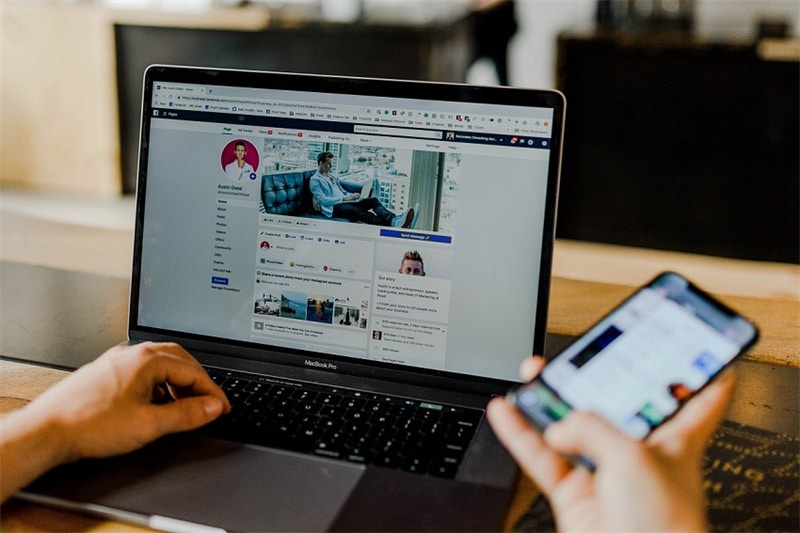
Infidelity is a sensitive topic that many couples face, and it can have devastating consequences on the relationship.
While there are various factors that can contribute to infidelity, social media has become a major concern in recent years. With the increasing popularity of social media platforms, people now have easier access to connect with others outside of their current relationships. Social media has made it easier for people to find potential partners and engage in affairs, leading to a rise in infidelity cases.
Furthermore, social media has blurred the lines between platonic and romantic relationships, leading to an increase in emotional infidelity. Emotional infidelity can occur when an individual shares intimate feelings, thoughts, or emotions with someone outside of their current relationship, leading to a deep emotional connection. Social media makes it easy for people to develop emotional connections with others, which can cause significant damage to their current relationships.
Given the prevalence of social media in our daily lives, it is essential to recognize its role in perpetuating infidelity. In this blog post, we will explore how social media often perpetuates infidelity in relationships, with a particular focus on the role of dating sites in exacerbating infidelity.
We will also examine the impact of social media on trust in relationships and how it can erode the foundation of a healthy partnership. By understanding the impact of social media on infidelity, we can take steps to protect our relationships and prevent the damaging effects of infidelity.
Social Media as a Platform for Temptation

Social media has become a breeding ground for temptation and can make it easier for people to connect with potential partners outside of their current relationships. This is largely due to the ease of access and the anonymity that social media provides. With the click of a button, individuals can find and interact with people who they may find attractive, leading to potential infidelity.
Social media platforms such as Facebook, Instagram, and Twitter have made it easier than ever for people to find and connect with others and have basically redefined infidelity. Through these platforms, people can view and like photos, share messages, and comment on posts, which can often lead to a deeper connection with someone they find attractive. This kind of interaction can sometimes lead to secret conversations and even secret meetings, ultimately leading to infidelity.
Moreover, social media can expose individuals to attractive and desirable people outside of their current relationship. People can easily stumble upon profiles of attractive individuals who share similar interests, hobbies, or professions. These profiles can often be a gateway to starting a conversation and can quickly develop into something more serious, leading to infidelity.
While social media can have many benefits, it can also make it easy for individuals to succumb to temptation and engage in infidelity. The anonymity and ease of access that social media provides can lead to secretive behaviors and interactions, making it difficult for partners to detect infidelity. It is essential to understand the role of social media in perpetuating infidelity and to take steps to prevent it from happening.
The Role of Dating Sites
Dating sites have revolutionized the way people find partners, but they have also contributed to the rise of infidelity in relationships. These platforms provide a convenient and discreet way for individuals to seek out and engage in extramarital affairs. While there are many dating sites available for all types of people, some of these sites specifically cater to those seeking affairs, such as dating sites.
These sites provide a platform for individuals in relationships to seek out affairs with other individuals who are also in committed relationships. These sites are designed to be discreet, and they often use advanced algorithms to match users with potential partners based on their preferences and interests. The anonymity and privacy offered by these sites make them a popular choice for those looking to engage in infidelity.
However, even dating sites that are not specifically designed for married individuals can contribute to infidelity. People can easily create fake profiles or misrepresent themselves to attract potential partners. The temptation to explore other options can be overwhelming for some individuals, leading them to engage in affairs outside of their current relationships.
Moreover, dating sites can make it easier for individuals to disconnect emotionally from their current partners and engage in infidelity. By providing an alternative means of connecting with other people, these sites can cause individuals to develop emotional connections with people outside of their current relationships.
It is important to recognize the role that dating sites play in perpetuating infidelity and to take steps to protect your relationship. Communication and trust are key to preventing infidelity, and it is important to be open and honest with your partner about your needs and concerns. Additionally, setting boundaries around the use of social media and dating sites can help prevent temptation from leading to infidelity.
Social Media and Emotional Infidelity

Social media has made it easier for individuals to connect with others on an emotional level, which can lead to emotional infidelity. Emotional infidelity occurs when one partner in a committed relationship shares intimate feelings, thoughts, or emotions with someone outside of their relationship, leading to a deep emotional connection. This type of infidelity can be just as damaging to a relationship as physical infidelity.
Social media provides individuals with an easy and discreet way to connect with others outside of their current relationships. People can easily connect with old flames, ex-partners, or people they have met online who share common interests or hobbies. This type of interaction can sometimes start off as innocent, but it can quickly develop into something more significant, leading to emotional infidelity.
Additionally, social media platforms such as Facebook, Instagram, and Twitter make it easy for individuals to share intimate details about their lives with others, including their emotions and feelings. This type of sharing can sometimes lead to the development of emotional connections with others who are not their current partner.
Emotional infidelity can be just as damaging to a relationship as physical infidelity, leading to feelings of betrayal and loss of trust. It can also cause significant emotional distress to the partner who is being emotionally cheated on.
It is important to recognize the potential for emotional infidelity in social media use and take steps to prevent it. Communication and transparency with your partner about your social media use and interactions with others is key to preventing emotional infidelity.
Setting boundaries around the use of social media and ensuring that both partners feel valued and appreciated in the relationship can also help prevent the development of emotional connections outside of the relationship.
The Impact of Social Media on Trust in Relationships
Social media can have a significant impact on trust in relationships, particularly when it comes to infidelity. The secrecy and deception involved in social media-based infidelity can damage trust and erode the foundation of a healthy relationship.
When a partner engages in infidelity through social media, it can cause significant emotional distress to the other partner. The betrayal of trust can be devastating and lead to feelings of insecurity, jealousy, and anger.
Additionally, the secrecy involved in social media-based infidelity can lead to further erosion of trust, as the partner who was cheated on may begin to question the honesty and transparency of their partner in other areas of the relationship.
Moreover, social media can provide an opportunity for partners to hide their actions and interactions with others, leading to further secrecy and distrust. The ability to easily delete messages, clear search histories, and use fake names or profiles can make it easy for partners to hide their actions and engage in infidelity.
The impact of social media on trust in relationships extends beyond infidelity as well. Social media use can create feelings of jealousy or insecurity if one partner is spending more time interacting with others online than with their partner.
Additionally, social media can expose partners to information or interactions that can lead to mistrust or doubt, such as seeing their partner interacting with an ex-partner or receiving flirtatious messages from someone else.
Conclusion
In conclusion, social media has become a significant contributor to infidelity in relationships, and it is essential to recognize its impact to prevent the damaging effects of infidelity. Social media provides a platform for temptation and can make it easier for individuals to find and connect with potential partners outside of their current relationships. Furthermore, social media blurs the lines between platonic and romantic relationships, leading to an increase in emotional infidelity.
Dating sites also contribute to infidelity, providing a convenient and discreet way for individuals to seek out and engage in extramarital affairs. Emotional infidelity, which can occur through social media, can be just as damaging to a relationship as physical infidelity. Moreover, social media use can erode trust in relationships, leading to feelings of betrayal and loss of trust.
It is important to establish clear boundaries and communication around the use of social media to prevent infidelity and maintain trust in a relationship. Communication and transparency with your partner are key to preventing emotional and physical infidelity. Additionally, taking steps to strengthen the relationship through shared experiences, open communication, and mutual support can help build a foundation of trust and prevent infidelity.










